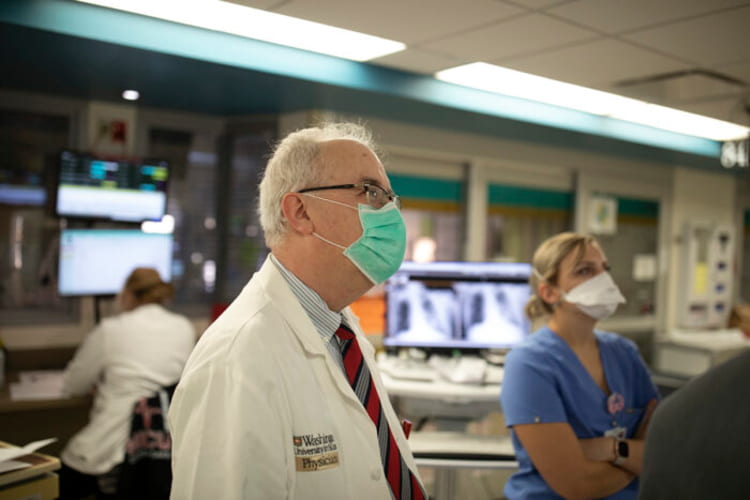A new episode of our podcast, “Show Me the Science,” has been posted. At present, these podcast episodes are highlighting research and patient care on the Washington University Medical Campus as our scientists and clinicians confront the COVID-19 pandemic.
COVID-19 vaccine development has been rapid and successful. Two vaccines that report more than 90% efficacy against the virus already are in use, with approval of more vaccines expected in the coming weeks. Meanwhile, the development of treatments for those infected with the virus has been slower. Only one drug, the steroid dexamethasone, has been proven to reduce the risk of death in those hospitalized with COVID-19. In this episode, we’ll hear reasons why the development of effective treatments has progressed so slowly. Discussing this with us is William G. Powderly, MD, the Larry J. Shapiro Director of the Institute for Public Health, co-director of the Division of Infectious Diseases at Washington University School of Medicine in St. Louis and director of the university’s Institute of Clinical and Translational Sciences. He says one reason development of therapies has been slow is because there haven’t been enough big, well-controlled studies. We’ll also hear from Eric J. Lenze, MD, the Wallace and Lucille Renard Professor of Psychiatry, and Angela M. Reiersen, MD, an associate professor of psychiatry. They led a preliminary study at the School of Medicine in which a psychiatric drug was used to keep people with COVID-19 from getting sick enough to be hospitalized. Their study was successful. Now they’re expanding the trial to include COVID-19 patients in all of the United States.
